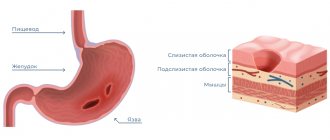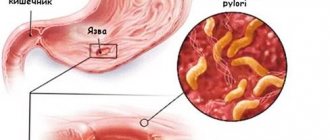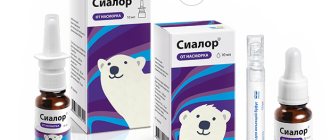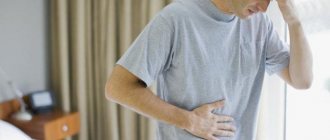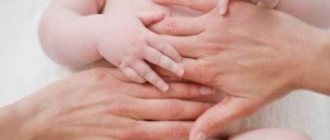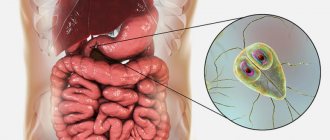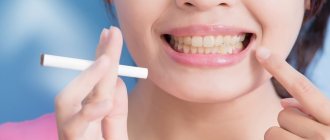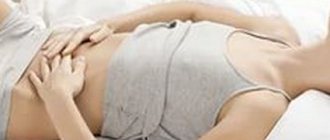Everyone has a feeling of nausea, regardless of age - both adults and children. This is an unpleasant sensation that causes discomfort in the stomach, dizziness, increased salivation, poor health, and pale skin.
Nausea before vomiting can occur even in a healthy person. This is usually associated with disruption of processes in the digestive tract, cardiovascular or central nervous system. If you feel sick for a long time, periodically, this can be a symptom of a number of diseases (cholecystitis, gastritis, meningitis), which occurs during toxicosis during pregnancy.
Increased salivation: causes and treatment
Hypersalivation - what is it?
Why is there a lot of saliva in the mouth?
Salivation during sleep
Excessive salivation during pregnancy
Treatment of hypersalivation
Saliva is not just a liquid secreted in the mouth. Saliva is involved in the digestion process and protects the body from bacteria. The process of salivation is not controlled by humans. Usually about 2 liters of saliva are produced per day. Under the influence of certain factors, its amount can greatly increase. In this article we will talk about the causes of increased salivation and how to treat it.
Diagnostics
With the problem of drooling, patients turn to a dentist, or less often to a therapist. Given the variety of causes of pathology, the doctor is required to take a detailed medical history and clarify related complaints. The diagnostic search begins with an examination of the oral cavity to identify signs of inflammation or caries. To establish the causes of drooling, the following instrumental and laboratory diagnostic methods are used:
- Biochemical analysis of saliva.
The study evaluates the amount of fatty acid metabolites formed during the life of bacterial flora. Based on the results of the analysis, it is possible to determine the presence of dysbacteriosis and determine the level of damage to the digestive tract. - General clinical studies.
Patients with drooling undergo a general blood test, changes in which indicate the presence of an inflammatory or infectious process. To exclude helminthic infestations, a coprogram is prescribed, a fecal examination for helminth eggs. According to indications, a clinical urine test and studies according to Nechiporenko and Zimnitsky are performed. - Instrumental techniques.
If a patient suffering from drooling has complaints about the functioning of the digestive system, an ultrasound of the abdominal organs and plain radiography are necessary. To exclude neurological diseases, CT or MRI of the brain is recommended. Electroneuromyography is effective for assessing the functions of peripheral nerves.
Why is there a lot of saliva in my mouth?
Let's consider the possible causes of increased salivation
| Oral diseases. These include: stomatitis, gingivitis, glossitis, etc. Bacteria provoke irritation of the salivary glands, hence the excessive secretion of fluid. If these diseases are not treated, inflammation of the salivary gland may occur. |
| Having dentures or braces. The structures cause irritation of the mucous membrane, which provokes excessive secretion of fluid. This problem is especially noticeable in the first two weeks after installation of the structure, when adaptation occurs. |
| Gastrointestinal diseases (gastritis, pancreatitis, stomach ulcers, etc.). The problem most often occurs against the background of increased stomach acidity. Other reasons that doctors highlight: liver dysfunction, worms, stress on the pancreas. |
| Diseases of the central nervous system (cerebral palsy, Parkinson's disease, irritation of the trigeminal nerve, migraine). A similar condition occurs when the functioning of the vestibular apparatus is disrupted and blood pressure increases. |
| ENT diseases, ARVI, inflammation of the adenoids. The person begins to breathe predominantly through the mouth, as nasal breathing is difficult. The mucous membrane dries out, causing the glands to begin to work actively. |
| Changes in hormonal levels - problems with the thyroid gland, diabetes, menopause, etc. |
| Smoking. Tobacco smoke irritates the salivary glands. They begin to produce a lot of fluid. This is why smokers have the habit of spitting. |
Indications for removal of salivary glands
The salivary gland must be removed in the following cases:
- duct blockage;
- cyst formation;
- development of benign neoplasms;
- salivary gland cancer.
A blockage of the salivary gland duct occurs when calcareous deposits in the duct form a calculus (“stone”) that obstructs the outflow of gland secretions. As a result, the patient feels pain in the area of the inflamed gland, and its size increases. It is possible that a secondary infection may join the inflammatory process.
A cyst is a capsule filled with liquid contents that appears in place of the salivary gland. The cyst is characterized by the same symptoms as blockage of the salivary gland duct. A characteristic feature of salivary gland cysts is a tendency to progressive growth.
Benign neoplasms, usually an adenoma of the salivary gland, are also prone to growth and can reach such large sizes that they deform the oval of the face, leading to the appearance of noticeable cosmetic defects in appearance. A growing tumor puts pressure on surrounding tissues, which can cause problems in their functioning.
Cancer (adenocarcinoma) of the salivary gland is very dangerous to health, as it is prone to rapid growth, penetration into nearby organs and metastases.
Salivation during sleep
Sometimes, when a person wakes up, he notices wet spots on the pillow. This usually happens due to extreme fatigue and sound sleep. However, if salivation during sleep becomes a pattern, you should consult a doctor.
The main factors that provoke the secretion of saliva during sleep.
- Malocclusion or missing teeth. Saliva flows out because the teeth do not close completely.
- Difficulty in nasal breathing: runny nose, deviated nasal septum, colds. All this forces you to breathe through your mouth. Since the lips do not close, the accumulated fluid flows out. This is often accompanied by snoring.
- Deep sleep.
Excessive salivation during pregnancy
During pregnancy, hormonal changes occur in the female body. The main reasons why an expectant mother’s salivation increases.
- Heartburn. When the acid-base balance in the stomach is disturbed, the body begins to produce a lot of saliva. This is a defensive reaction.
- Reaction to medications.
- Toxicosis. To stop gagging, the expectant mother tries to swallow saliva less often. Therefore, it may seem that there is more saliva in the mouth than usual.
A large amount of saliva does not threaten the fetus, however, if this is a consequence of any disease, then the pregnant woman should monitor her condition.
What complications are possible?
- Impaired taste perception of food.
- Dehydration of the body.
- Insomnia, disturbance of psycho-emotional state.
- Deterioration of the skin condition on the face and body.
- Infectious diseases.
Prevention
Having established the reason why your cat is drooling profusely, you should completely eliminate the factors causing this pathology. You can avoid this situation again by following a few tips:
- Regular examination and cleaning of your pet's mouth
- storage of chemical, household and medicinal substances in an inaccessible place
- any drops from parasites are applied only in the withers area, this will avoid possible licking by the cat
- The cat's food should not contain sharp or hard pieces, such as fish bones.
- regular preventative examinations at the veterinarian
Jump to: navigation, search
SALIVATION
- secretory activity of the salivary glands. Salivation is provided by three pairs of large salivary glands (parotid, submandibular and sublingual), as well as small glands located in the oral cavity (labial, buccal, palatine, lingual and gingival). Salivation plays an important role in ensuring the processing and absorption of food products, maintaining homeostasis, and performing excretory, endocrine and protective functions.
Small salivary glands secrete constantly, moisturizing the oral mucosa. Salivation of large salivary glands (see Parotid gland, Submandibular gland, Sublingual gland) is of a reflex nature: it begins under the influence of conditioned food stimuli (the sight, smell of food, verbal signals) and intensifies under the influence of unconditioned stimulation of the receptors of the oral cavity (see Mouth, oral cavity) both food and rejected substances. In addition, in humans, the S. of the parotid and sublingual glands contributes to speech function.
S.'s regulation is carried out by nerve centers located in the medulla oblongata (see), hypothalamus (see) and cerebral cortex (see). The S. centers of the medulla oblongata consist of two symmetrically located groups of nerve cells in the nuclei of the reticular formation - nuclei salivatorii superiores et inferiores (see Reticular formation). The S. centers of the cerebral cortex are located in the area of the Sylvian fissure, the superior frontal and orbital gyri (see Fissures and gyri of the cerebral cortex).
The study of S.'s mechanism began in the 19th century. According to the theory of R. Heidenhain, put forward by him in 1868, the release of water and salts during S. occurs under the influence of secretory nerves, and S. of organic substances - under the stimulation of trophic ones. At the same time, it was discovered that the parasympathetically denervated gland exhibits enhanced secretory activity, which C. Bernard called paralytic secretion. Subsequently, it was shown that in the first 1-3 days after denervation, secretion is caused by the release of acetylcholine. Then the release of the mediator stops, the sensitivity of the glandular cells to biologically active substances increases, and paralytic secretion occurs under the influence of blood catecholamines. Denervation also distorts the response of glandular cells to various chemicals. agents. Thus, in innervated glands, atropine blocks S., and after postganglionic denervation enhances it (the so-called salivary atropine paradox).
For the purpose of studying S. in hron. experiment in animals by I.P. Pavlov was. An operation consisting of a salivary duct fistula was proposed. To do this, the papilla of the duct of the parotid or submandibular gland is sutured to the outer surface of the cheek. In humans, S. is studied using the Leschly-Yushchenko-Krasnogorsky capsule, which contains internal and external chambers: the internal one is applied to the excretory duct and secured with a suction cup to the outer chamber. A flow meter is placed in the inner chamber. Modern microelectrode studies have provided especially much for understanding the mechanism of S. (see Microelectrode research method). With their help, it was established that serous and mucous cells have different polarization of the apical and basement membranes, and their excitation is associated not with depolarization, but with the so-called. excitatory hyperpolarization. It has also been shown that glandular cells and salivary glands respond to stimulation of both the sympathetic and parasympathetic nerves (with a latent period lasting about 0.4 seconds), which apparently indicates the complexity of the neurohumoral mechanism of regulation of S.
Normally, a person secretes up to 2 liters of saliva per day. Due to the strengthening of both salivary reflexes and spontaneous saliva, the amount of saliva can increase several times (hypersalivation). Hypersalivation is observed in persons suffering from Parkinson's disease, epidemic encephalitis, cerebrovascular accident, stomatitis, toxicosis of pregnancy, helminthiasis, trigeminal neuralgia. In this case, increased salivation (ptialism) may be such that the patient is unable to swallow saliva. A decrease in salivary secretion (i.e., hyposalivation) is accompanied by dryness of the oral mucosa - xerostomia (see). Hyposalivation (hyposialia, sialopenia) and asialia (i.e. extreme degree of hyposalivation) are symptoms of both general diseases (septic conditions, pneumonia, diabetes, pernicious anemia, typhus and typhoid fever, etc.), and pathology of the salivary glands themselves, their inflammation (see Sialadenitis), blockage of the excretory ducts (see Sialolithiasis).
See also Secretion, Saliva, Salivary glands.
Bibliography:
Babaeva A. G. and Shubnikova E. A. Structure, function and adaptive growth of the salivary glands, M., 1979;
Babkin B. P. Secretory mechanism of the digestive glands, L., 1960; Barabash R. D. Regulation of the secretion of enzymes of the salivary glands, Usp. physiol. Sciences, vol. II, No. 1, p. 73, 1980; Gutkin V. I. Mechanisms of formation of the electrolyte composition of the secretions of the salivary glands, Usp. modern biol., t. 78, v. 3(6), p. 4, 14, 1974, bibliogr.; aka, Biophysical basis of the secretion of an organic macromolecular product by the cells of the salivary glands, Usp. physiol. Sciences, vol. 7, no. 1, p. 94, 1976, bibliogr.; Pavlov I.P. Complete works, vol. 2, book. 2, p. 11, M.-L., 1951; Sazama L. Diseases of the salivary glands, trans. from Czech, Prague, 1971; Physiology of the autonomic nervous system, ed. O. G. Baklavadzhyana et al., L., 1981; Physiology of digestion, ed. A. V. Solovyova et al., L., 1974.
V. I. Gutkin.
Category: Source: Great Medical Encyclopedia (BME), edited by Petrovsky B.V., 3rd edition
Treatment of hypersalivation
There is no single treatment method for all cases. However, you can use methods to reduce the activity of the salivary glands - sometimes they are recommended by doctors as an addition to complex therapy.
- Reception of sorbents: activated carbon, polysorb, etc.
- Taking medications prescribed by a doctor.
- Exercise therapy, massage (most often prescribed for children).
- Botulinum toxin injections.
In rare exceptions, the salivary glands are partially removed, but the downside is that there is a risk of damaging the facial nerve.
Which doctors will help you cope with this disease? Dentist, gastroenterologist, endocrinologist, neurologist, infectious disease specialist, etc.
Rehabilitation after removal of the salivary glands
After removal of the salivary gland, patients may only need to stay in the hospital. To eliminate postoperative pain, painkillers are prescribed in the form of tablets, intramuscular or intravenous injections. After the operation, the patient must remain calm, avoid physical activity, and refrain from visiting the sauna or bathhouse for two weeks. Compliance with these recommendations promotes rapid wound healing.
If the facial nerve was damaged during the operation, the patient may have a “sagging” corner of the mouth on the side of the removed gland. Regular exercise over several weeks helps restore innervation, but in some cases the paresis remains.
If during the operation the surgeon comes to the conclusion that the tumor has affected the facial nerve, it is completely removed to prevent further spread of the malignant neoplasm. In such patients, paralysis of part of the facial muscles remains.
In patients who have undergone removal of the parotid salivary gland, temporary numbness of the auricle on the side of the removed gland is possible. In such cases, it is important to protect the ear from the cold so as not to freeze it.
Surgical removal of one of the salivary glands will not cause noticeable dry mouth.
At the Oxford Medical clinic, surgery to remove the salivary glands is performed by qualified maxillofacial surgeons in modern, new operating rooms. Rehabilitation of patients takes place in comfortable rooms designed for one or two patients.

